Hey all, welcome back to my blog. At the time of me writing this, it’s coming to be the end of the year (hope you all had a great Thanksgiving, Christmas, New Years, etc). This year was probably the most tumultuous year of my life, but I was able to learn more about myself than probably the previous 10 or so years combined. There’s still much to be thankful for, despite the hardships that the year also brought, with one of them being what I’m able to do as Verum. There’s a lot that I want to do for 2025, and I’m hoping that it’s a year that I can look back with fondness.
I didn’t get to make a media reflections post for November, so I’m combining that month with December. As a whole, I didn’t get to as many things as I’d liked, but there were enough gems for me to be thankful. There’s also a few upcoming stories that I’m excited to experience, as well as some that I’m currently munching through.
These aren’t ones that are guaranteed to be on my January or other future post, but just as a peek into what might be coming up after this post: Naoko Yamada’s newest film is set to air in the States later in January, and I’ve been continuing on with my favorite game series, picking up where I left off with Trails into Reverie. A trip to the bookstore and subsequent exploration had me purchasing a light novel that I think I’ll like, The Mimosa Confessions. I’m also considering picking up some smaller, indie Visual Novels to read since I’ve just finished the one that I’d been reading for a while now.
Anyway, let’s get into what this post is actually about, November and December.
First off, we have the first 8 episodes of Re:Zero’s 3rd season. Only the first 8 episodes because it was split into 2 parts and the 2nd half doesn’t air until February of 2025. Re:Zero to me has always been an interesting bag of traits ever since it first aired back in 2016. Its core conceit doesn’t particularly standout, with isekai shows having become an increasingly common sight with each passing season. But despite my own jaded lens, Re:Zero has managed to stand out from its isekai peers by being wholly unique in its execution of both premise and world. Much of the general appeal of the show lies in its thriller aspects, which is complimented by an adaptation that is as uninhibited in its brutal scenes and raw emotions as its source material.
Not all of that is something I necessarily prioritize in media, but it’s hard not to appreciate the sheer confidence and competence with which Re:Zero forges ahead with. The style of world building is what I find the most compelling – it always feels like there’s much more to be discovered and unpacked with each following arc, and the story builds upon that wonder and intrigue in consistently rewarding ways. So, while not everything that the show brings is my thing, it’s been a rewarding enough experience for me to have continued watching.
Season 3 starts off not long after the events of the previous season, with it bringing a new setting and returning faces. Priestella as a city is likely my favorite so far, which doesn’t surprise me given that I have a soft spot for Venice themed towns (see the Aria series). It’s not just for its aesthetic beauty, but as a set piece for the story, Priestella has provided a wealth of quiet character moments that a foreign, romantic city only elevates. The presence of Emilia, Priscilla, Anastasia, and Felt’s factions allows for the sort of catharsis in character interactions that can only be properly rewarded with significant time invested in both getting to know these characters and having shared experiences. I can really only be invested in the weight of Wilhelm and Reinhard’s emotional arcs because of the events that have enfolded across multiple seasons.
If you’ve been reading enough of these posts, you’d know that I have an affinity towards more focused, quiet character moments and genuine character drama, so it shouldn’t come at much of a shock that I preferred the more character focused half of this season to the previous seasons. The pace had started to pick up by the middle of the season, so I’m excited to see what the latter half has in store for our heroes.
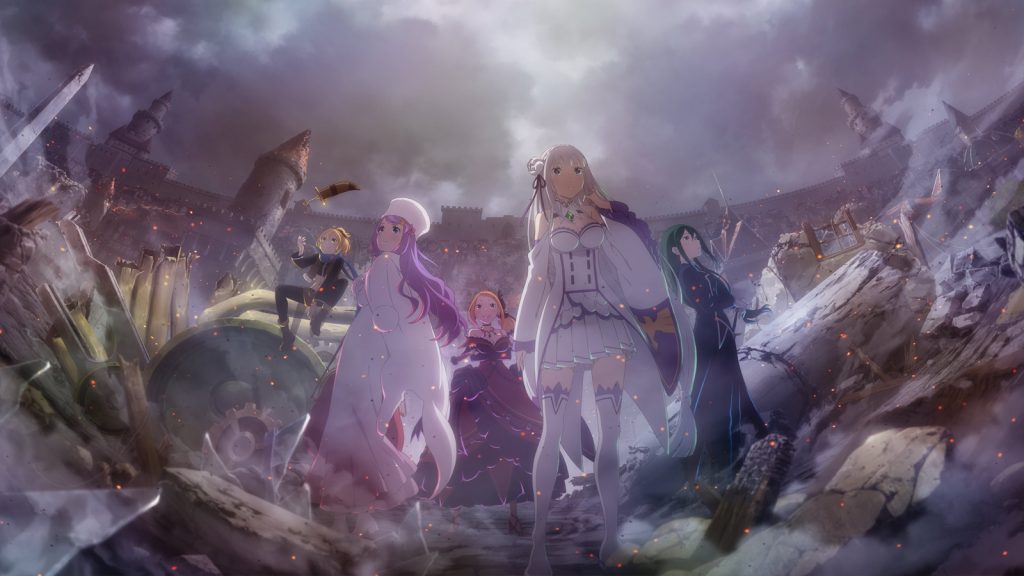
Next we have the last film of the Ghibli catalogue that I was looking to watch in 2024, The Tale of Princess Kaguya. I had initially dismissed this film when it had first released in 2013, as something that my younger self assumed I wouldn’t really like. Maybe at the time, I was right, because I’m glad to have watched it with the knowledge and experiences I have today. I’m not sure if my younger self, with all his suppressed emotions, would have been able to have the catharsis that my current self had when watching this film.
It’s no surprise at this point that this film was beautifully composed in its animation and art, reminiscent of timeless Japanese folklore and scrolls. It’s a work of exceptional craftsmanship and wonder, as magical and fantastical as it is full of life. The scenes of Kaguya dancing under the cherry blossoms or running away from the capital are those rare moments of awe and wonder in media, that there’s truly something special at work that captures the essence of what makes us human. It’s a feat of true art, equally matched by the emotional impact of its tempered, kind heart.
Watching Kaguya now, with all the experiences I’ve had both growing up and as an adult, cut me deeper than it ever would have if I were younger. I have a long history with my family, but I’m not really here to trauma dump that entire history. I’ll just say that I very deeply care about family, but the family situation I was in growing up wasn’t exactly the best for me to be myself. My parents aren’t necessarily bad people and they only wanted the “best” for me, but they can only see the world and others from their own lens, being unaware of the implications and consequences that their own enforced values have. Kaguya’s father isn’t all that different, he only did what he thought was best for Kaguya, but was unaware of the burden that his love had on her.
I have a lot of thoughts on family that I could probably write an entire post on… But the main point that I want to bring up is that a person’s upbringing has a significant impact on so many aspects on personality, feelings, values, among many other things later in life. This might seem obvious, but I should clarify that there are so many things that are outside our own consciousness, things that we just do naturally and don’t think about, that are linked to various traumas we might’ve experienced when we were younger. I only bring this up because the process of reconciling with both direct family relations and the implications that an upbringing might have had can be a long journey of self-discovery, healing, and hardships. Though Kaguya doesn’t focus on the aftermath and healing process, it intimately depicts the active affects that such a suffocating environment has on Kaguya herself.
Though it might seem like I’m faulting the parenting aspect here, I’m really not, and neither does the director, Takahata. Parenting is difficult, and though I do hold the opinion that there are many people out there that shouldn’t be parents, I know that many do their best in their own way. Kaguya’s father isn’t a terrible person for defining Kaguya’s success in life. Selfish? Maybe. Evil? No… In spite of all of this, Kaguya always manages to express herself through those cracks between the weight of all the expectations, beautiful robes, and makeup. She sees small joy in the vestiges of her makeshift country home and garden and the film never once denies that it’s wrong to hold onto these little joys. Those times where Kaguya collapses under the weight of everything, concedes to her own fate, or stands her ground against her father, all of those times were Kaguya just being herself.
Those times were we can be ourselves no matter what situation tries to suppress that are the moments that we cling onto. Even in Kaguya’s decision to don the robes and makeup of a princess, she was being herself, as “Kaguya” only wanted to satisfy her father’s wishes. As I’ve grown older, I’ve become more aware than ever that it’s okay to not have lived up to my own family’s expectations. It also wasn’t wrong to have attempted to follow that path for a time either. I still have many scars that have yet to heal, but through everything, I think I was only being myself, as Kaguya was. It was never wrong to have done so, even if our parents may never come to realize that.
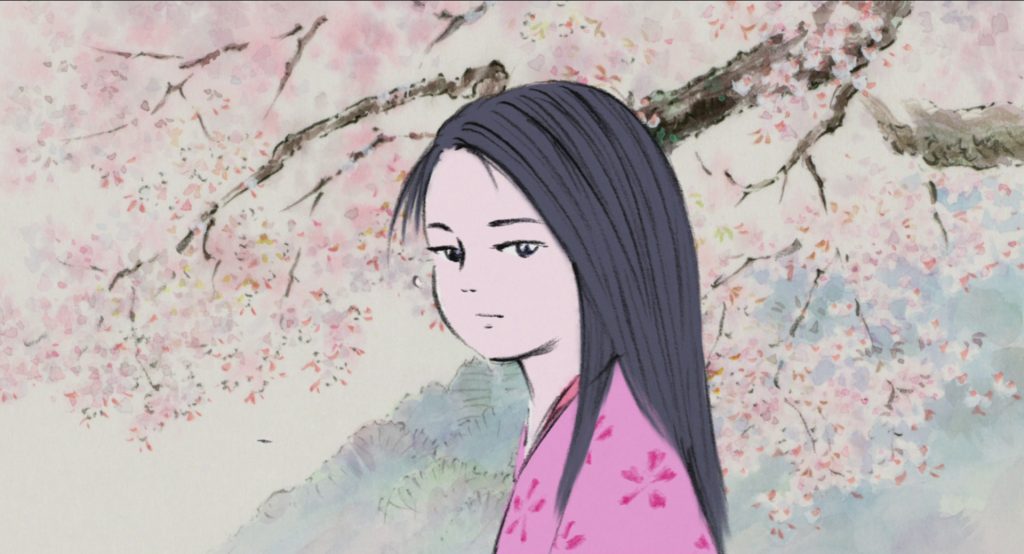
Moving onto a wholly different experience in both emotional sensibilities and in the world of animation, I made my way through the entirety of Arcane Season 2. I have a bit of history with League, as I’d first started playing in season 1 and had been playing on and off until about 1-2 years ago. My feelings on it are a bit mixed, as I like many things about the game and have made a lot of good friends from it, but I’ve only become further alienated from it as various game design choices and shifting emotional priorities have made me realize that it’s just not really for me anymore. I’ll still occasionally get on to play casually with friends, but my years of grinding ranked on the ladder are far behind me.
The lore and universe of League aren’t exactly things that I particularly care too much about, but I’d brought up my own history with the game because it’s not so simple to look at a show like Arcane in a vacuum. Our media experiences are complicated, and my own familiarity and comfort level with the universe is going to have an effect on my experience with the show, regardless of whether I want it to or not. Thankfully, my own investment into the game has only served to elevate the viewing experience, making for a consistently entertaining and rewarding ride.
I’d mentioned Arcane as a shift in emotional sensibilities from what I’d been watching prior – it’s a show that I’d describe as “not really my thing,” but so absolutely confident and skillful in its execution that it’s difficult not to look its way. The first season was just that, a thoroughly crafted, gripping story populated by well chosen characters and rife with explosive drama, action, and both musical and visual spectacles. It wasn’t something I could look away from, despite it leaning away from the types of emotional and human depth that I tend to resonate with.
Though the second season maintained much of the first’s appeal, I did think it compromised on its execution at times. Early on, I thought it was a bit too caught up in its visual and musical embellishments, without the proper dramatic weight behind the fights. Towards the end, everything didn’t come together as nicely as the story would demand, leaving things feeling a bit rushed. In spite of these things, there were some genuine moments of emotional acuity, unlike what might’ve come before. Though it didn’t have as much of a plot relevance as I would’ve expected, the episode dedicated to Ekko and Heimerdinger’s time in an alternate reality was thing of quiet beauty, slowing things down in a way that I’d always wished to see from the show.
I ended up liking Arcane more than I would’ve expected, both as a high-octane spectacle and as a narrative bolstered by solid writing and a surprising emotional core. I don’t expect the franchise to shift more towards my own sensibilities in media, but that’s honestly okay. I’m excited to see whatever story that awaits next in Ruenterra.
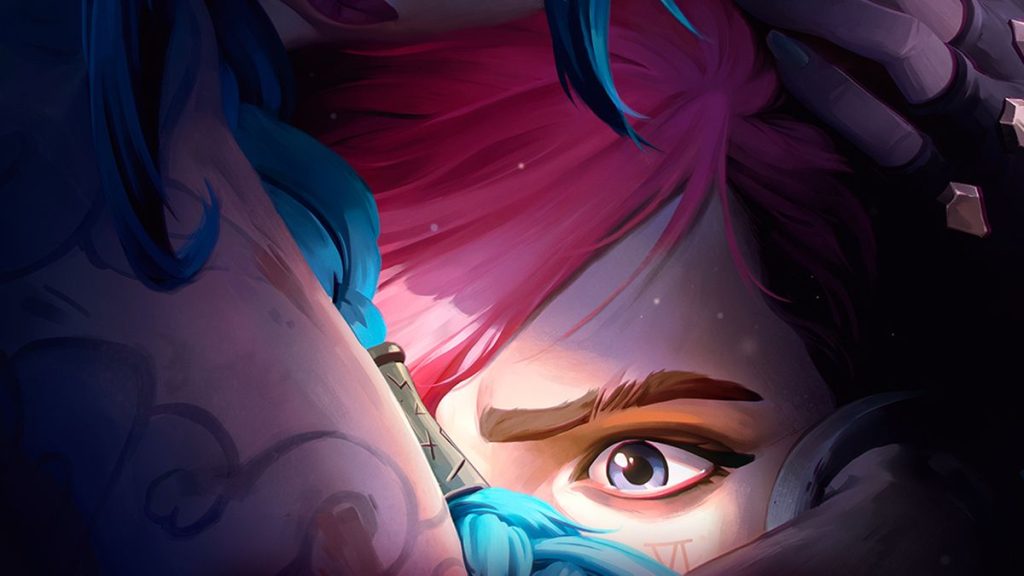
Moving on from the shows and films, we move onto what I believe is my first visual novel that I’m covering on these posts, Full Metal Daemon Muramasa. Maybe it’s a bit odd that I, as a visual novel dev, am only just now covering a visual novel for the first time in a media reflections post, but it’s for the same reason I don’t often cover JRPG’s, despite me being a huge fan of JRPG’s: they tend to be enormous time investments, often accompanied by an equal expanse of depth and content. I’ve actually been chipping away at Muramasa for a while now, and it’s basically taken up my VN reading real estate for almost a year (along with the occasional Little Busters, which I’m slowly making my way through). I thought it’d only be appropriate to cover it holistically, as, oh boy, this is a big one.
Muramasa’s a story that I can really only imagine existing as a visual novel, in both the aspects that I believe are akin to these types of stories. The first is the sheer ambition and scale in story, including the unrelenting and merciless scenes that these works depict to tell its story. Like, really, there are some fucked up scenes in this story, and Muramasa doesn’t hold back. It’s akin to works like Muv Luv and Subahibi that I’ve read, where it seems like these stories could only exist in the way they do and as effective as they are because they’re so unrestrained.
The other aspect that makes me think this would only work as a visual novel is that it makes exceptionally good use of the medium to tell its story. There’s one example in particular that comes at the first ending that players usually reach of the common route that is perfect in this regard. The medium of Visual Novels have a degree of player agency to them, most often through player choice. It’s often in the ways that stories tend to utilize this mechanic that elevates the story that it tries to tell, and Muramasa does this in ways that I’d always imagined that visual novels would. It plays around with player expectation and subverts them in major ways that reward the emotional investment of the reader. It’s not just in this form of player agency that Muramasa utilizes, but it also makes incredible use of the technical combination of text, visual, and sounds to convey action scenes that for most other works, would be hard to capture.
All these aspects are in service to a story whose ambition is only matched by very few works I’ve experienced. Muramasa tackles a lot of topics, ranging from morality, the nature of killing, politics, family, to the essence of power, while also managing to tell a deeply personal story of acceptance and forgiveness. It’s dense in a way that left me thinking about the story for some time – while not every stance taken in the story was one that I’d personally take, it’s difficult to deny the truth inherent in many its ideas. Muramasa’s world is not kind, and though there is kindness to be found, it’s full of bloodshed, self centeredness, cruelty around every passing corner. Despite this, Muramasa manages to find hope in the humanity of its two leads, which is where I found much of the “heart” in this story.
Kageaki and Muramasa (the character) each have a lot going for their characters, but its their interpersonal bond that bolsters much of the emotional and thematic backbone of the story, and ultimately gives each the strength to overcome their own insurmountable odds. At a certain point of the story, it feels like they truly have nothing left but each other to pursue their purpose, and even at the point where it feels like they no longer have that purpose, all that remains is still one another. It’s illogical, moving, and emotional in all the ways that makes us human.
I can see this story potentially turning many people away with its lack of restraint, particularly its numerous scenes of characters getting sexually violated. It’s something that I think the story could have toned down a bit, along with some of the story’s other hard-to-stomach scenes. It’s not something too foreign to these kinds of Visual Novels, but it’s hard to find that line between “accepting that these stories work in spite of these inevitabilities” and “these stories are only effective because of their unperturbed writing.” Regardless, Muramasa works in its own unique way, with all its quirky humor, imposing characters, and ambitious story. If nothing else, it’s for sure deserving of its acclaim as one of the greatest Visual Novels of all time.
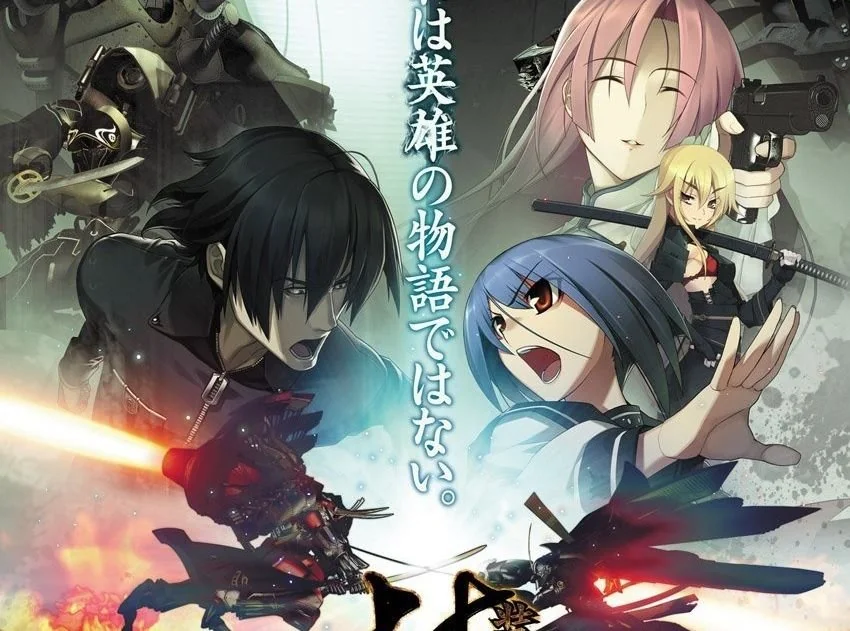
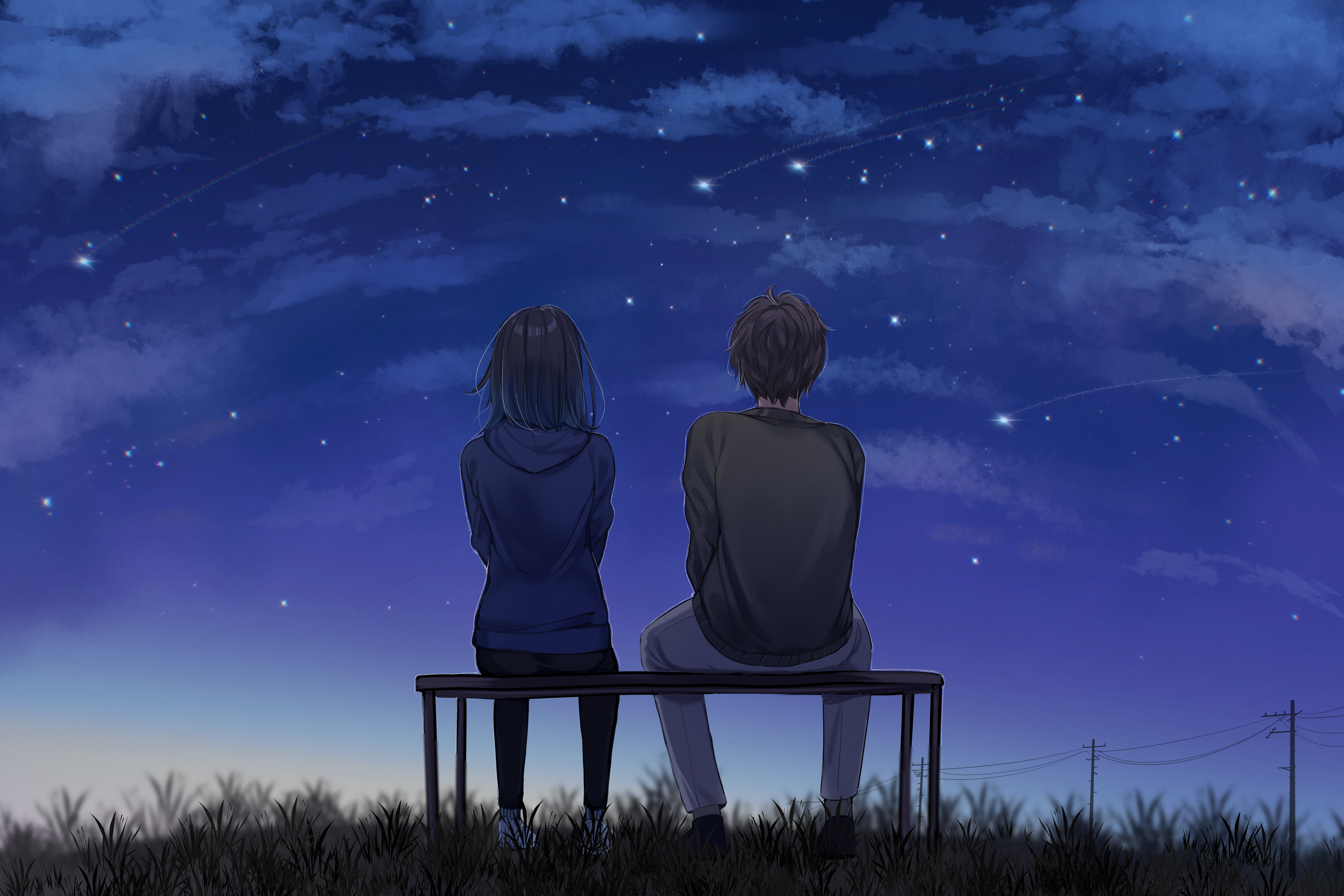
Leave a Reply